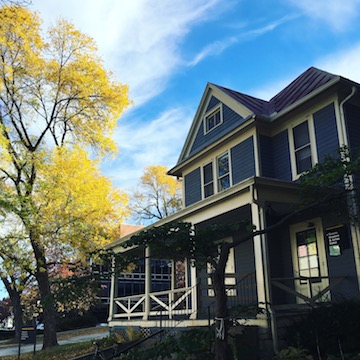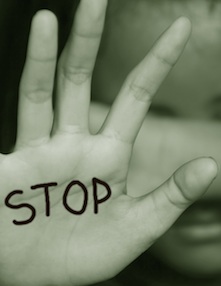By Nicole Bolt
There is a long list of things soon-to-be college students will worry about: Will my roommate like me? Can I handle the course work? Is the food in the dining hall that awful? One thing they shouldn’t have to worry about – Will I be sexually assaulted? It should go without saying that students should have access to higher education without the threat of sexual violence. The national conversation about the topic is getting louder and awareness is increasing, but according to a recent survey published by the American Association of Universities, one in four female undergrads have experienced sexual assault or misconduct. We find ourselves in a sexualized culture, and yet, we can’t seem to talk about sexual violence in an academic setting or from an educational standpoint.
The findings of the AAU’s recent climate assessment survey are not far off from other statistics citing one in five female undergrads have experienced sexual assault or misconduct. With the new survey, it is easy to assume that sexual violence is increasing, but this might not be the case. “One of the most common misconceptions we have on campus is that when there’s a spike in reporting, there tends to be a panic and people think there are more assaults happening—that’s not generally true,” explains Susan Junis. Janis is the University Prevention and Education Coordinator at the Rape Victim Advocacy Program (RVAP) at the University of Iowa. Janis goes on to explain that while seeing an increase might be scary, “what that actually means is that more people are feeling safer coming forward and those higher numbers are actually better.”
In reaction to an increase in reported sexual assaults on campus in 2014, the University of Iowa’s former president developed a six point plan to help combat sexual assault. The plan aims to crack down on offenders, increase support for survivors, improve prevention and education, improve communication, add funding, and regular meetings with the student advisory committee. When talking about ways to improve the plan, the University of Iowa’s Vice President and Provost P. Barry Butler said he would like to see more education for incoming students. One of the full-time prevention staff members at RVAP works to do just this and primarily has programs in secondary schools facilitating healthy relationship curriculum. When talking about prevention Janis said, “I think that’s how we are ultimately going to change the culture, by teaching children.”
One of the reasons combatting sexual violence is so difficult is that there are so many myths and misconceptions embedded within our culture about sexual violence. Linda Stewart Kroon is the Director at the Women’s Resource and Action Center (WRAC), which falls under Student Life at the University of Iowa. Kroon explains that one myth around campus sexual assault is that it is simply a matter of miscommunication, which is false. “All the research tells us that the perpetrator knows what they are doing and uses various methods to take advantage of the victim.” Title IX of the Education Amendments of 1972 prohibits sexual harassment and sexual violence where you go to school. Kroon believes that an area that needs improvement is offender accountability, which she calls the toughest one. “There is a nervousness around not wanting to trample due process, which is important. We again are up against some of those myths.” Students should know the consequences of sexual misconduct just as well as they do with plagiarism, and often times this isn’t the case.
A positive sign that college campuses are taking this problem more seriously is the increase in support for prevention strategies and education. Educating students on self-defense is important, but equal importance needs to be placed on educating what defines sexual violence to help debunk many of the myths surrounding it. Kroon says one of the easiest ways to get involved with helping to prevent sexual violence is to talk with your friends. “Students have it in their power to shape the culture of the campus.” Talk about everything from resources and training programs to why rape jokes aren’t funny if someone tells one. Tackling sexual violence is difficult, but we are improving. “It’s a long game, we are looking at changing culture, which is a huge, monumental task,” Janis said. It would be incredible to live in a world where rape whistles don’t exist.
National Sexual Assault Hotline: National hotline, operated by RAINN, that serves people affected by sexual violence. It automatically routes the caller to their nearest rape crisis center. Hotline: 800-656-HOPE
National Resources for Sexual Assault Survivors:
https://rainn.org/get-information/links

The Women’s Resource and Action Center on the University of Iowa campus. Photo by Nicole Bolt.
Nicole Bolt is a senior at the University of Iowa majoring in English with minors in mass communications and communications studies. The University of Iowa is home to the Alpha of Iowa Chapter of Phi Beta Kappa.




